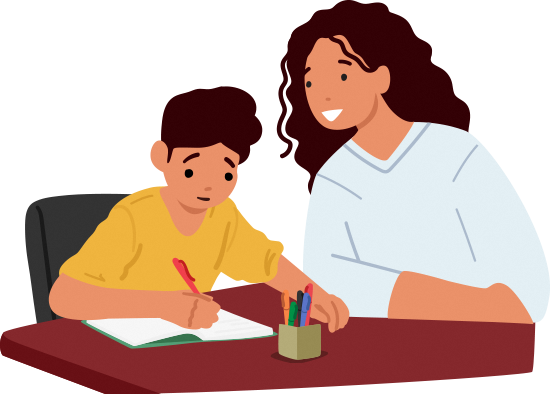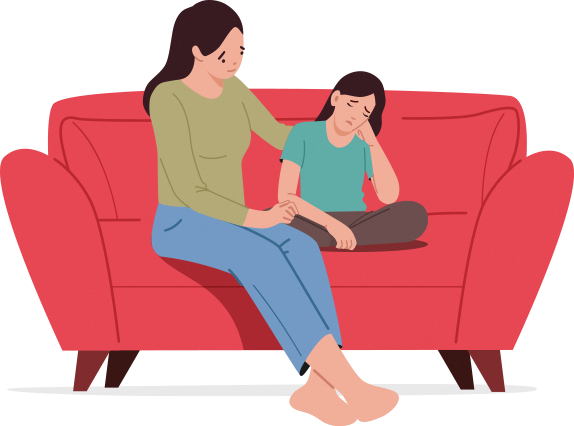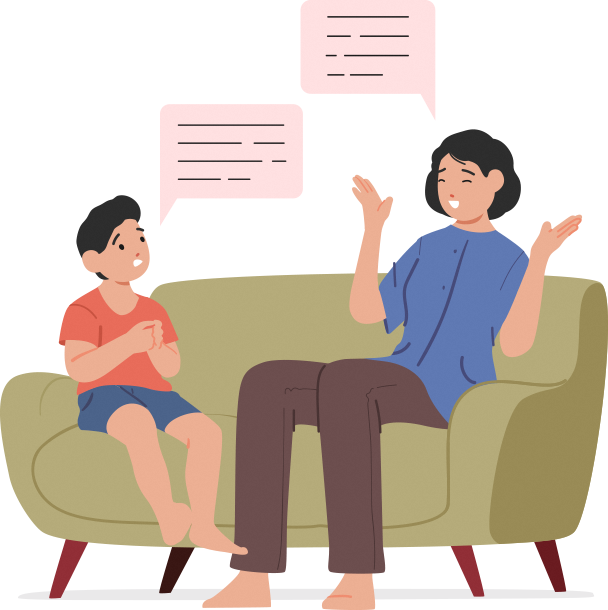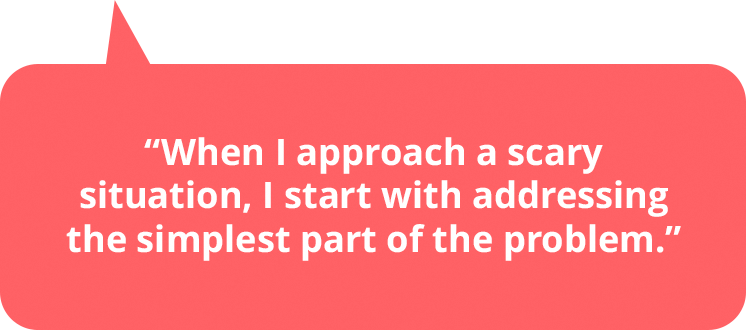How can you help your child cope with anxious feelings?
Most children and youths learn to cope with different fears and worries by tapping on their strengths and healthy coping methods.
However, if your child has difficulty coping with anxious feelings, you can try:

Encouraging your child to take slow, deep breaths – like filling a balloon full of air in their stomach

Additionally, you can ask them to trace the outline of their hand as they practise deep breathing till they feel calmer
Breathe in while tracing upwards along one side of a finger
Breathe out while tracing downwards along the other side of that finger

Acknowledge how hard it is for your child to face situations that make them anxious
Once they feel calmer, encourage your child to express their worries
If they find it difficult to talk about it, they can express themselves through drawing or writing

Encourage your child to say or write down each part of the situation that is making them anxious to understand what is causing them to feel that way
This can make your child feel that the situation is more manageable, reducing their tendency to avoid it and allowing them to face their fears instead (as avoidance can worsen their anxiety)

Children and youth who are more anxious tend to worry about making mistakes and may be unsure of how to navigate unfamiliar situations
Discuss with your child possible ways to approach such situations while reminding them to continue trying other options if their chosen option does not work
You can also provide them with the support that they require by:
Reminding them that no one is perfect, and it is okay to make mistakes
Guiding them to focus on what they can control and let go of what they cannot
To further boost their confidence, you can also encourage them to try new things and assure them that they have your support
Praise them for their effort regardless of the outcome

Role model and share with your child healthy ways to cope during situations that cause you to feel anxious and stressed so that your child can learn from you
After acknowledging your child’s feelings (and if they desire to know), you can share with them how you overcame stressful situations in the past
For example, when faced with a scary situation, you can say:

If your child seems to always fear the worst, you can ask them to consider reframing the situation with the Recall-Rationalise-Replace (3R) strategy

Helping your child to manage their feelings appropriately

While you may want to quickly remove the source of your child’s anxiety through problem-solving, this may not be beneficial for them in the long run
By taking a step back and giving them space to figure it out themselves, you can help your child build confidence as well as resilience, and learn how to independently manage their anxious feelings


